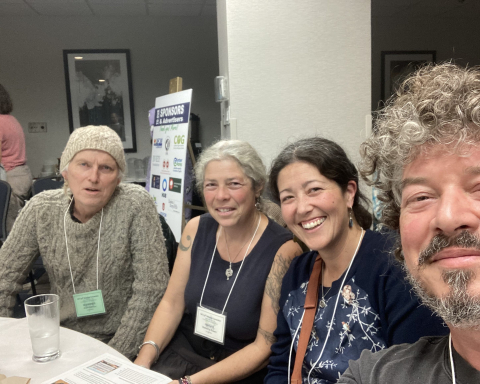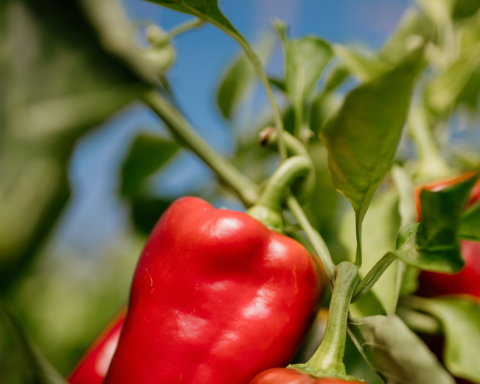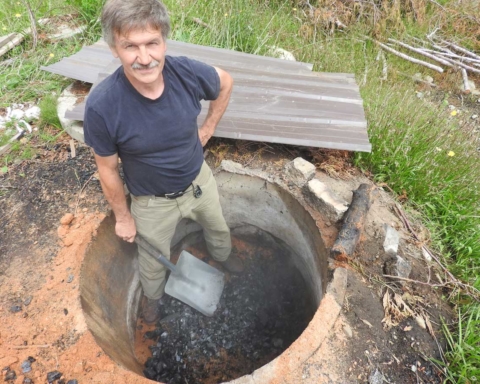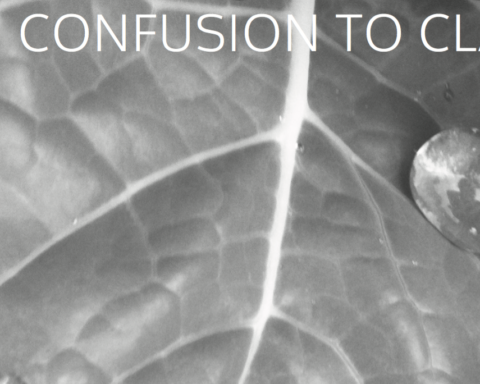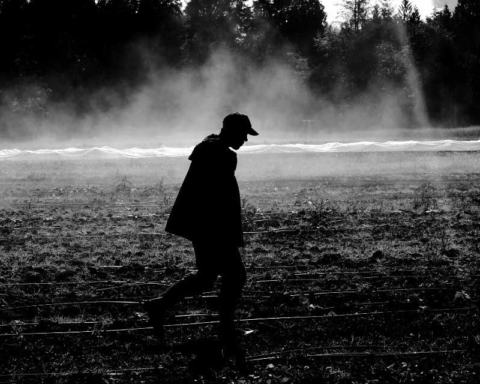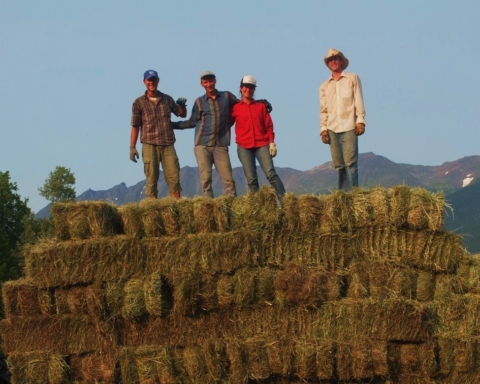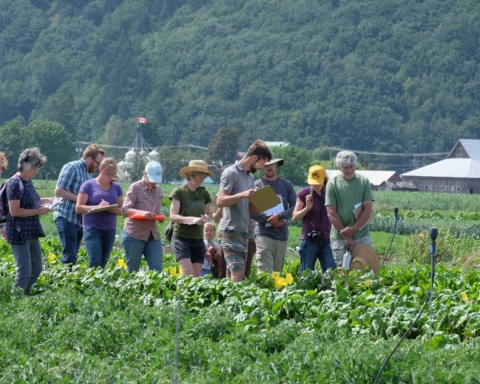Bob McCoubrey
A Succession Planning Story
After more than 35 years of growing tree fruits and vegetables on our small farm in Lake Country, it was time to think about retirement. Our joints were telling us to ease up on the physical work and our son and daughter had moved on to other towns and careers.
The idea of selling the property was a bit scary, as we had become attached to the land and the houses. The main house was just a year or two shy of its 100th birthday, and the “guest house” was one my father had built for a previous owner when my parents first moved to the area to take up farming, back in the late 1940’s. Both houses had heritage value for us.
The land had supported our family well over our time on the farm. Sharon and I had transitioned the land to certified organic status beginning in 1989, and we didn’t want to see new owners abandoning what we had achieved by going back to conventional farming methods. We were reluctant to list the property with a realtor, taking a chance on the intentions that new owners might have.
We didn’t want to see new owners abandoning what we had achieved by going back to conventional farming methods”
Our Okanagan location meant we could benefit from the overheated real estate market. Land prices were high. However, that meant many of the people who might share our values and plans for the land might not be able to afford the in ated prices. After a lifetime of living here, close to family and friends, we wanted to stay in the area, which would mean buying in that same overheated real estate market, leaving us unwilling to sell for a discounted price to encourage like-minded buyers.
As we struggled with what to do, we were fortunate to meet Molly Bannerman and Matt Thurston. Recent graduates in agriculture from the University of Guelph, and fresh from a year of WWOOFing and touring in the United Kingdom, they were about to get married and were thinking of settling down on an organic farm. It seemed like a perfect match. They both found good jobs related to farming, and we began a three to four year “dance” to see if we could put a deal together.
There was a period when they leased the farm and lived in the small house, followed by a few years with us running the farm again, while they moved in to town, only to come back to rent an acre to grow some vegetables. It became clear that we all wanted to make it work for Matt and Molly to acquire the farm.
The farm had all of the basic equipment needed to grow the crops we had been producing, and we had recently built a cold storage facility, which would make it easier for the Thurstons to grow, store, and sell their crops while continuing to work off farm. The biggest challenge was to find a way to finance the sale in a way that the cash flow could handle the debt servicing requirements.
The key turned out to be rethinking how we would invest for the future.”
A paradigm shift needed to happen in our minds about how to manage our needs and our assets. I had always thought we would sell the farm, buy a retirement property, invest the remainder of the proceeds, and live happily ever after. The key turned out to be rethinking how we would invest for the future.
Financial advisors told us to avoid high risk investments as we moved into retirement in an effort to keep our assets safe. That would mean lower but stable returns from nancial products such as term deposits. We wouldn’t be making a lot of money, but we could see that we would have all we needed to enjoy life.
As we looked for a solution, we recalled the help given to us by the seller, when we bought the farm back in 1973. After scraping together a down payment and borrowing the maximum available to us on a first mortgage from Farm Credit Canada, we still needed to find 20% of the purchase price. The seller took a second mortgage on the property, with payments of only the interest for a number of years to keep our cash flow requirements low while we got ourselves established.
The real estate market had changed in the 38 years since we started farming. Interest rates were much lower, but the principal amounts were significantly higher. The financing solution we needed would have to put even more importance on keeping the cash flow required to service the debt as low as possible. In the final agreement, we took 30% of the sale price in cash, financed through a first mortgage by the Thurstons. The remaining 70% was financed through a second mortgage that we hold, with payments of only the interest, at a rate slightly higher than what low risk investments would pay us, but lower than what a second mortgage would cost on the open market. After four years, half of the second mortgage was to be paid out, leaving 35% of the sale price in the second mortgage for the full 10-year term.
All we had to do was to decide to invest in the future of organic farming by trusting and investing in the next generation of organic farmers.”
Some would suggest that we were putting ourselves in a much higher risk position than we would experience by investing in penny stocks on the Vancouver Stock Market; however, we had come to know and trust the Thurstons, and thought the risk was acceptable. Our lawyer did his job well, pointing out all of the things that could go wrong, and suggesting contract wording that would protect everyone’s interests. But, being an organic farmer himself, he understood our desire to believe in our new partners in farming.
So in 2011, we moved our belongings to a quiet property where we enjoy a bit of gardening and watching the weather on the lake. The financing arrangement met all of our needs. We never looked back and have not regretted any of our decisions.
Five years into the agreement, the Thurstons are ahead of schedule with their payments, and the farm is thriving. The transitions — into retirement for us and into farming for Matt and Molly, have been smooth and painless. All we had to do was to decide to invest in the future of organic farming by trusting and investing in the next generation of organic farmers.
Bob McCoubrey is a retired organic orchardist in the Okanagan’s Lake Country. With his wife Sharon, he farmed eight acres for 38 years before turning his efforts to mentorship, writing, volunteering, and community building.



